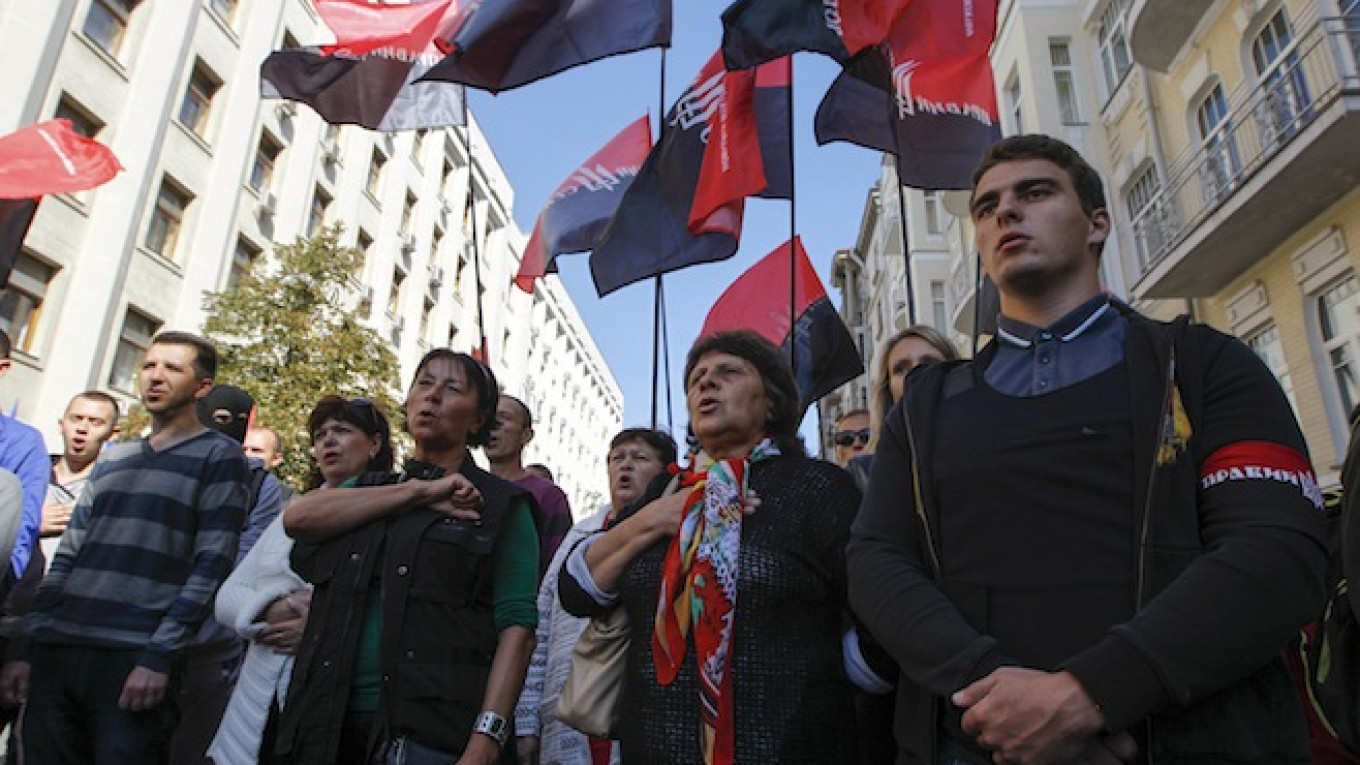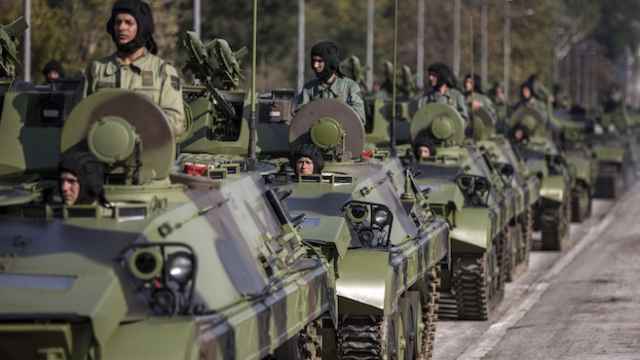President Vladimir Putin has expressed concerns about what he described as the rise of neo-Nazism in Europe, telling a Serbian publication that it was Russia's duty to oppose fascism.
Putin's comments, made to Serbia's Politics magazine, came shortly before the Russian president was set to arrive in Belgrade to take part in events to commemorate the 70th anniversary of the city's liberation from Nazi Germany on Thursday.
"Unfortunately, the 'vaccine' for the Nazi virus that was developed at the [post-war] Nuremburg trials has lost its power in certain countries of Europe. A clear example of this is the open manifestations of neo-Nazism that has become commonplace in Latvia and other Baltic countries," Putin was cited as saying in the interview by RIA Novosti.
"The situation in Ukraine provokes particular concern in this regard; the anti-constitutional rebellion that took place in February was driven by nationalist forces and other radical groups," Putin added.
Although the interview with Politics not set to be published until Thursday, Russia's state-run RIA Novosti offered some tidbits of Putin's comments in advance.
"It is our duty today to oppose the glorification of Nazism," Putin said. "To firmly resist attempts to change the outcome of World War II. To consistently combat all forms and manifestations of racism, xenophobia, aggressive nationalism and chauvinism."
Belgrade will be holding its first military parade in nearly 30 years on Thursday, to be attended by Putin.
Putin's visit has already sparked criticism from the West, with U.S. Ambassador to Serbia Michael Kirby saying the Russian president's visit was untimely.
"You can have good relations with Russia and China, and with the U.S. But our view of visits by Chinese and Russian officials differs. The Chinese have not attacked anyone, but the Russians have," Kirby said in recent comments to Belgrade's Vecernje Novosti newspaper.
Kirby was apparently referring to ongoing events in Ukraine, where the West believes pro-Russian separatists have been receiving Kremlin backing to fight Ukrainian troops.
A Message from The Moscow Times:
Dear readers,
We are facing unprecedented challenges. Russia's Prosecutor General's Office has designated The Moscow Times as an "undesirable" organization, criminalizing our work and putting our staff at risk of prosecution. This follows our earlier unjust labeling as a "foreign agent."
These actions are direct attempts to silence independent journalism in Russia. The authorities claim our work "discredits the decisions of the Russian leadership." We see things differently: we strive to provide accurate, unbiased reporting on Russia.
We, the journalists of The Moscow Times, refuse to be silenced. But to continue our work, we need your help.
Your support, no matter how small, makes a world of difference. If you can, please support us monthly starting from just $2. It's quick to set up, and every contribution makes a significant impact.
By supporting The Moscow Times, you're defending open, independent journalism in the face of repression. Thank you for standing with us.
Remind me later.






